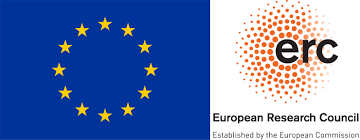European Visions of the Qur’ān in the Middle Ages (9th-15th centuries)#
20-21 May 2021Online event
Registration
 for the workshop
for the workshopEvent website

Although the first Latin translation of the Qur’ān dates to 1143, and its first vernacular (Italian) translation to 1547, the sacred book of Islam was known far before in Europe, where it elicited passionate and contrasting reactions, ranging from vehement attacks concerning its content or composition to an acknowledgement of the aesthetics of its stylistic features and the universal human quality of its message.
The aim of this two-day workshop will be to address the different perspectives from which the Qur’an was approached and to identify the various attitudes medieval Latin readers adopted towards it. The focus is therefore on the medieval readers of the Qur’ān that encompasses the wide range of translators, polemicists, and commentators who had access to the Qur’ān or parts of it, through the mechanisms of reading that they elaborated, the ideas and data drawn from these readings, and how these ideas sparked a plurality of responses.
In this perspective, we will question the following lines of research:
- How was the Qur’ān named, defined, and represented?
- How was the Qur’ān judged and evaluated?
- How was the Qur’ān read and understood?
- How was the Qur’ān used, transformed, and exploited?
List of speakers:#
Eugenio Burgio – Samuela Simion
– Samuela Simion – Université Ca’ Foscari, Venice
– Université Ca’ Foscari, Venice
Pierre Courtain – Université catholique de Louvain/Université de Nantes
– Université catholique de Louvain/Université de Nantes
Michelina di Cesare – Université Roma 1, Rome
– Université Roma 1, Rome
Sara Fani – Université L’Orientale, Naples
– Université L’Orientale, Naples
Olivier Hanne – Université d’Aix-Marseille
– Université d’Aix-Marseille
Agustin Justicia Lara – Universita Autonoma Barcelona
– Universita Autonoma Barcelona
Jacob Langeloh – Universität Freiburg
– Universität Freiburg
Vera Ribaudo – Université Ca’ Foscari, Venise
– Université Ca’ Foscari, Venise
Davide Scotto – Goethe-Universität Frankfurt
– Goethe-Universität Frankfurt
Tristan Vigliano – Université d’Aix-Marseille
– Université d’Aix-Marseille
The workshop is organized by Florence Ninitte and Irene Reginato
and Irene Reginato , Post-doc researchers at the University of Nantes within the ERC Synergy Grant EuQu.
, Post-doc researchers at the University of Nantes within the ERC Synergy Grant EuQu.
Download the folder .
.
Download the programme .
.



